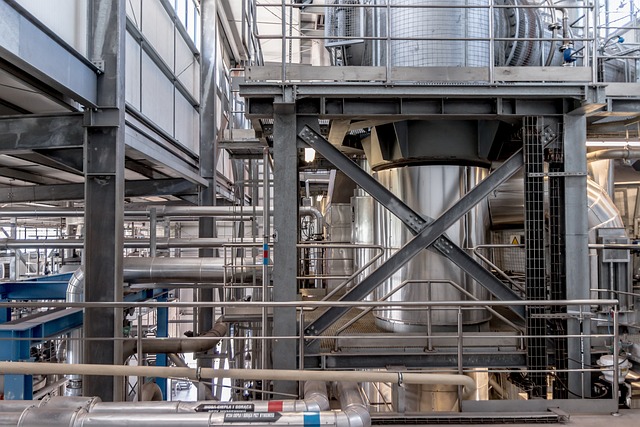In a rapidly changing accounting sector, Certified Public Accountants (CPAs) face challenges keeping up with technology. Effective CPA infrastructure planning involves streamlining workflows through automation, enhancing collaboration, and bolstering cybersecurity to manage complex data and regulatory requirements. Initiating a thorough assessment of current systems, integrating long-term goals, and implementing modern software solutions facilitate improved client outcomes. Balancing technological advancements with budget constraints and staff training needs positions CPAs as competitive business advisors in today's digital age.
In today’s digital age, effective CPA infrastructure planning is paramount for success. This article guides accountants through a strategic approach to enhancing their IT systems. We explore common challenges faced by CPAs, emphasizing the need for thoughtful planning. From assessing current technology to prioritizing upgrades and implementing robust data security measures, discover actionable steps to transform your practice. Learn how modern strategic planning can improve efficiency, enhance client services, and ensure your firm’s long-term viability in a competitive market.
- Understanding CPA Infrastructure Challenges
- Strategic Planning for Modern Accountants
- Assessing Current IT Systems
- Prioritizing Tech Upgrades
- Cost-Effective Solutions for CPAs
- Enhancing Data Security Measures
Understanding CPA Infrastructure Challenges

In the dynamic landscape of accounting, Certified Public Accountants (CPAs) face unique challenges when it comes to their IT infrastructure. Traditional financial IT upgrades often lag behind rapid technological advancements, creating a digital divide that hampers efficiency and competitiveness. CPAs are increasingly tasked with managing complex datasets, adhering to stringent regulatory requirements, and integrating diverse software tools—all while maintaining robust data security and privacy standards. This requires a well-planned, scalable, and secure IT infrastructure that aligns with the evolving needs of their practices.
Effective CPA infrastructure planning involves streamlining workflows through automation, enhancing collaboration across departments, and ensuring network resilience against cyber threats. Workflow automation CPAs can significantly reduce manual errors, expedite processes like tax preparation, and enable real-time data analysis, ultimately boosting client service levels. A well-structured network plan is crucial for accommodating future growth, maintaining peak performance, and facilitating seamless access to critical financial information.
Strategic Planning for Modern Accountants

In today’s digital age, modern accountants are not just numbers crunchers but strategic thinkers who leverage technology to drive business growth and efficiency. To stay competitive, CPAs need to go beyond traditional accounting practices and embrace comprehensive CPA infrastructure planning. This involves a thorough assessment of their existing financial IT systems, identifying areas for improvement, and implementing financial IT upgrades that align with the organization’s goals.
A well-defined infrastructure roadmap is essential in guiding this transformation. It allows CPAs to future-proof their practices, ensuring they can adapt to changing market demands and regulatory requirements. By focusing on tech modernization, accountants can enhance data security, streamline operations, and deliver more valuable insights to their clients, ultimately positioning themselves as trusted business advisors rather than mere record-keepers.
Assessing Current IT Systems

For accountants looking to enhance their practice through strategic IT infrastructure improvements, assessing current systems is the crucial first step. This involves a comprehensive review of existing hardware, software, and network architecture to identify both strengths and weaknesses. By evaluating how seamlessly data flows across different platforms, professionals can pinpoint areas where modernization or integration is needed for more efficient operations.
During this phase, CPAs should consider their long-term goals, including planned IT growth and the desired capabilities for future services. This analysis lays the foundation for developing an infrastructure roadmap that aligns with professional standards and fosters innovation in service delivery, ultimately contributing to better client outcomes through robust CPA network planning.
Prioritizing Tech Upgrades

In today’s digital age, the role of technology in accounting has evolved significantly, demanding that CPAs prioritize strategic IT infrastructure planning. Effective CPA infrastructure planning involves assessing existing systems and identifying areas for improvement to enhance operational efficiency and data security. By focusing on technology transformation accounting, CPAs can ensure their practices are not just keeping up with industry trends but leading them.
This process includes making informed IT decisions, considering the latest software solutions for streamlining financial management, and designing robust networks that support collaboration while safeguarding sensitive client information. Successful CPA network planning involves balancing the need for advanced technology with practical considerations like budget constraints and staff training requirements. As a result, CPAs can harness the power of IT decision-making to elevate their services, better serve clients, and remain competitive in a rapidly digitizing business landscape.
Cost-Effective Solutions for CPAs

Many CPAs often find themselves caught between providing exceptional service to clients and managing an outdated or inefficient IT infrastructure. This is where cost-effective solutions come into play, offering a much-needed lifeline for accounting firms. By leveraging strategic planning services, CPAs can embark on a journey of technology transformation, revolutionizing their workflow automation and financial IT upgrades.
Through comprehensive assessments and tailored strategies, these services identify areas for improvement within existing systems. By implementing efficient software solutions, cloud computing, and data analytics, accounting professionals can enhance productivity while reducing operational costs. This not only ensures that CPAs stay competitive in a rapidly evolving digital landscape but also allows them to provide more advanced financial advisory services to their clients.
Enhancing Data Security Measures

In today’s digital era, enhancing data security measures is paramount for accountants looking to safeguard their clients’ sensitive financial information. CPA infrastructure planning plays a crucial role in this regard, integrating robust cybersecurity protocols into the core of firm IT upgrades. By futureproofing their IT systems through strategic planning, accounting professionals can mitigate risks associated with cyber threats and ensure compliance with evolving regulatory standards.
Adopting an IT lifecycle advice approach allows CPAs to stay ahead of potential vulnerabilities. Regular security audits, encryption technologies, and multi-factor authentication are just a few components that contribute to a comprehensive Data Protection strategy. Such proactive measures not only safeguard financial IT systems but also foster trust among clients, positioning accounting firms as forward-thinking, reliable, and secure service providers.
